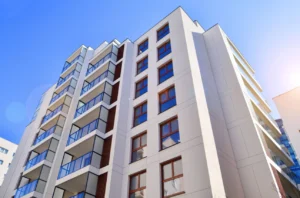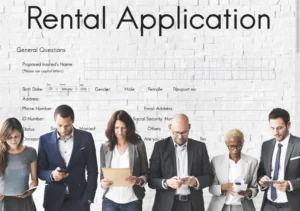Apartment Owners Say Rent Help to Prevent ‘Total Economic Collapse’ Is Not Enough
 As a $2 trillion aid package races through Congress, two groups representing owners of apartment buildings praised the effort but said more help is urgently needed to stabilize housing and the economy thanks to the COVID-19 pandemic.
As a $2 trillion aid package races through Congress, two groups representing owners of apartment buildings praised the effort but said more help is urgently needed to stabilize housing and the economy thanks to the COVID-19 pandemic.
The National Multifamily Housing Council and the National Apartment Association are calling for more “direct emergency rental assistance,” an eviction stay only for renters affected by the coronavirus crisis, and an expansion of mortgage forbearance to all types of mortgages, including on apartment buildings.
As currently written, they said, the eviction moratorium “is already creating an expectation that unaffected renters do not have to meet their lease obligations.”
What do you think of the proposal? Read their whole statement below:
The National Multifamily Housing Council (NMHC) and the National Apartment Association (NAA), on behalf of the 40 million Americans who call an apartment home and the 17.5 million jobs the industry supports, applaud Congress’ quick action on the Coronavirus Aid, Relief, and Economic Security Act (CARES Act) intended to stave off total economic collapse in the face of the COVID-19 pandemic.
While there are a number of important provisions included that will be helpful to the industry and its renters, there are others that will create substantial challenges for rental property owners and imperil housing stability Americans need and deserve during this crisis.
To its credit, Congress took important steps to provide relief to affected American renters and property owners. Boosting funding to U.S. Department of Housing and Urban Development (HUD) programs, expanding unemployment benefits and providing substantial tax relief are welcome resources. Yet, more must be done. NMHC and NAA have identified three areas where the legislation, while well-intended, falls short and will be detrimental to the stability of the rental housing market.
First, while we understand the intent of the national eviction moratorium included in the legislation, lawmakers inadvertently neglected to specifically tie the moratorium to those affected by the COVID-19 crisis. Instead, what should be a limited protective step is expanded to those who have not been financially impacted by the pandemic. This is already creating an expectation that unaffected renters do not have to meet their lease obligations. The unintended consequences of the eviction moratorium will wreak havoc on the stability of the rental housing market and places it out of step with similar state and local actions. Congress must swiftly address this discrepancy.
Second, the current package provides substantial financial support to residents though HUD and unemployment insurance, however, more direct emergency rental assistance is necessary—particularly for those who do not presently receive federal housing assistance but now find themselves needing it.
Finally, at the urging of NMHC and NAA, Congress provided mortgage forbearance for multifamily property owners negatively impacted by the COVID-19 outbreak. The legislation, however, only provides this relief to owners with federally backed mortgages, such as those through the Federal Housing Administration (FHA), Fannie Mae and Freddie Mac. This protection needs to be expanded to all types of mortgages. Owners and operators are tasked with ensuring the viability of apartment communities. They, too, are experiencing financial hardships sometimes tenfold as renters in the communities across the country struggle.
Further, the provision limits forbearance to a 90-day time period, which is out of alignment with the 120-day eviction moratorium. Unless it is fixed, this disconnect could result in a mass wave of financial delinquencies and defaults from rental housing providers of all types and sizes, jeopardizing the stability of entire communities.
As the country moves forward, there will be significant uncertainty and growing challenges. NMHC and NAA are committed to working with Congress to address the continued need for relief as outlined above and ensure apartment residents and the industry are supported and protected in future legislation.
Source: brownstoner.com













 Accessibility
Accessibility